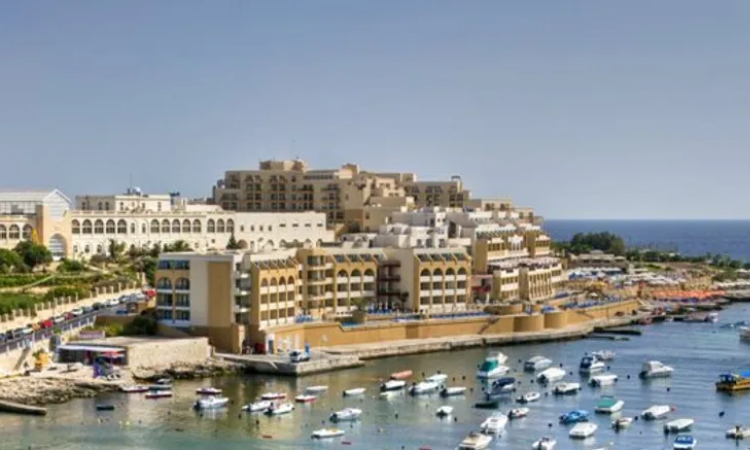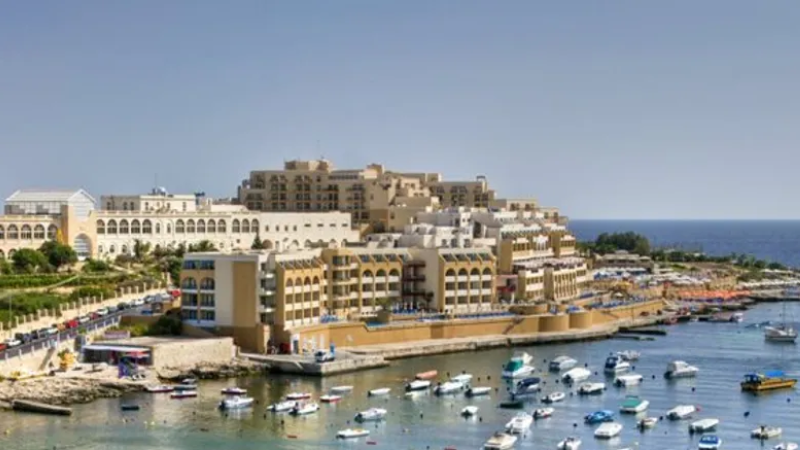
News

A çluster of hotels in St Julian’s. Studies are continuously showing the market to already be oversaturated.
More than €7 million of new EU funds have been directed by the government toward the opening of 40 new boutique hotels across the island as multiple studies show the market is saturated and in no need of any new hotel accommodation.
An exercise carried out by The Shift on the allocation of European Regional Development Fund (ERDF) funding shows the government awarded millions of euros in EU funds between 2021 and 2023 for the development of 40, mostly boutique, hotels.
The exercise also shows that those in power, or close to it, were the largest recipients of EU funds, which financed almost the entirety of their private investments.
Government officials with k knowledge of EU fund distribution told The Shift that apart from issues of misguided priorities for the funds’ use, an EU audit would also find gross irregularities in the disbursements and payments, as well as an “unbearable stench of nepotism and possible corruption”.
Following earlier revelations by The Shift on how the families of current and former cabinet members Agriculture Minister Anton Refalo and former Deputy Prime Minister Louis Grech have received hundreds of thousands of euros to open boutique hotels in Sliema and Qala, Gozo, the list reveals further interesting awardees (see the full list here).
It results that the highest amount of funds to finance went to a new boutique hotel in Naxxar called The Village Boutique and Spa of Village Hotel Ltd, which is owned by the Zammit Tabona family.
The company is owned by the Fortina Group’s Michael Zammit Tabona’s three children Ruth Trapani Galea Feriol, Sarah Zammit Tabona Westwood and Rebecca Zammit Tabona. In total, the Zammit Tabonas were allocated €490,500 for the new hotel – the highest ever allocated for such a project.
Other business people close to the government also managed to tap into the EU funding bonanza. These include Sterling Jeweller’s Romina Grech Fenech, twice over, for hotels in Iklin and Valletta.
Government officials explained that while these are EU funds, it is the Maltese government that decides on their allocation.
“There must have been a very well-connected consultancy firm that managed to secure so many funds for an industry that is clearly oversupplied. I think Brussels will be looking closer very soon,” one said.
As far back as two years ago, in 2021, the Malta Chamber of Commerce called for a moratorium on new applications for tourism accommodation in a bid to counteract oversupply.
The Chamber said that Malta did not need any more hotels as, when based on a ‘best-case scenario’ projection of 3.2 million tourist arrivals a year by 2030, this would result in 22.4 million guest nights, or 14.1 million nights, short of the projected capacity (in 2021).
The same oversupply conclusion was arrived at in 2022 by a study commissioned by the Malta Hotels and Restaurants Association (MHRA).
According to a carrying capacity exercise, done by Deloitte, Malta will need to attract 4.7 million tourists a year by 2027, each staying under seven nights, to prevent oversupply. Malta currently attracts less than 2.5 million tourists a year.
Even Finance Minister Clyde Caruana agrees that Malta does not need any new hotels and has called for a change of direction.
Still, despite the glaring data, the government continues to encourage more growth in the area, this time by distributing EU funds and approving permits left, right and centre – with businesses eventually lowering rates and standards to cope with oversupply issues.






